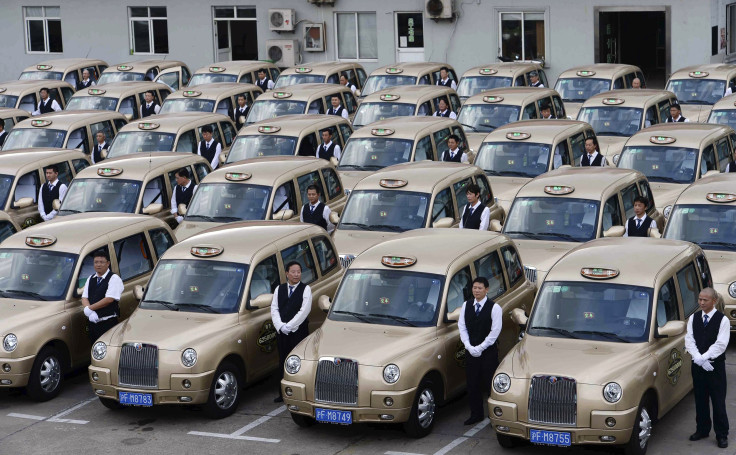Shanghai Limits Use Of Taxi Apps During Rush Hour As Police Crack Down On Private Drivers

SHANGHAI -- The city government is seeking to limit the use of legal taxi-booking apps during peak traffic hours, as the government struggles to deal with the impact these have had on China’s transport market.
Starting Monday, 6,000 of the city’s 40,000 licensed taxis have been told to “give priority” to passengers hailing cars on the street or booking them by telephone during morning and afternoon rush hours. Different drivers from the city’s five biggest taxi companies will take part in the plan for four hours each day, depending on their license plate numbers, according to the Shanghai Daily. The paper said the move was a response to the rapid growth in the popularity of smartphone booking apps, which have led to complaints by residents about the difficulty of finding a taxi on the street.
Many drivers at China’s licensed taxi companies make use of the country’s two main taxi-booking apps, Didi Dache and Kuaidi Dache, which together control 90 percent of a market estimated to reach 45 million users this year. The two companies, invested in by two of China’s two largest Internet companies, Tencent and Alibaba respectively, merged in February, creating a company whose worth is estimated at $8.5 billion.
However, analysts say the apps have created a 'digital divide:' while young people using the smartphone apps feel they have made life more convenient, older or less tech savvy users have complained that they now have to wait much longer to hail or book a cab. The government has also said that apps have undermined fairness and market order by allowing would-be passengers to offer drivers extra money to pick them up.
Shanghai’s Transport Commission said that, under the new rules, residents could now report drivers who refused to pick them up during rush hour by calling a hotline number. However, it remains to be seen how successful the program will be: Shanghai announced over a year ago that it was banning all drivers from using apps during rush hour, with apparently limited impact.
Observers say the taxi-booking issue has highlighted tension between the interests of various groups, including citizens, drivers and China’s powerful Internet companies. With many residents frustrated at how hard it can be to find a taxi, China has also seen a rapid expansion in the use of apps offering private cars, driven either by chauffeurs from existing car rental companies, or by private individuals seeking to earn extra money.
Didi Dache entered the private car market last year. Other key players in the market include Yidao Yongche, sometimes known as China’s Uber, and Uber itself, which entered the Chinese market last year.
Uber and other companies have sought to build market share by offering incentives to passengers and drivers. However their growing popularity has caused tension with drivers of licensed taxis, who went on strike in at least seven cities around China earlier this year. The drivers were complaining both about the high fees they had to pay to their companies, and about what they said was unfair competition from private drivers unburdened by such fees.
The Chinese government responded by banning app operators from using drivers or vehicles without taxi licenses -- saying this was partly to ensure passengers’ safety. Police are also reported to have been cracking down on private drivers. In Beijing, they have warned that anyone caught offering unlicensed taxi services faces a fine of some $3,225 (20,000 yuan).
In Shanghai, drivers working for Uber say police have since last month stepped up checks on cars they suspect may be operating as unlicensed taxis. They say drivers who are caught face having their car impounded and losing their license for up to three months, as well as large fines. Some drivers have responded by asking passengers to sit in the front seat and to tell police they are the driver’s friend if stopped. Others say they are planning to stop working via booking apps.
Uber has previously faced challenges in China including a police raid on a training session for drivers in the city of Chongqing. However the company has said that it does not operate illegal services in China, but simply links customers with drivers from licensed rental services, and offers nonprofit services via 'People’s Uber.'
Other firms such as Yidao Yongche also stress that they work with drivers from legitimate car-hire firms. Yidao Yongche’s co-founder Zhu Yueyi has said he believes the company has a long-term future using cars from rental providers, and has announced financing worth more than $1 billion this year.
Still, the latest developments are a reminder that the road for China’s booking app providers may be far from a smooth one.
© Copyright IBTimes 2024. All rights reserved.





















